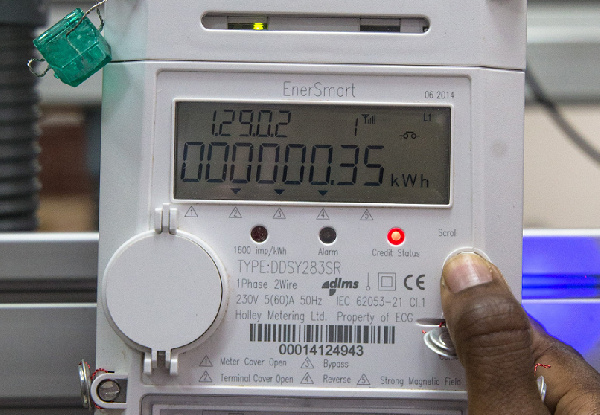Price of 1000 electricity unit in Ghana Cedis in Ghana

Electricity is an essential commodity that powers our daily lives. From lighting up our homes to fueling industries, it plays a pivotal role in driving economic growth and improving the overall quality of life. In Ghana, the pricing of electricity is a topic of great significance, as it directly impacts individuals, businesses, and the nation as a whole.
The demand for electricity continues to rise with a growing population and expanding economy. The supply of electricity struggles to keep up with this demand, leading to frequent power outages and load shedding. These challenges make it crucial for Ghana to have a sustainable and efficient pricing mechanism for electricity.
In Ghana, the measurement of electricity units is crucial for both consumers and providers. Understanding how electricity units are measured can help us make informed decisions about our energy consumption and manage our electricity bills effectively.
What are electricity units?
Electricity units, also known as kilowatt-hours (kWh), are the basic measurement of electrical energy. They represent the amount of energy consumed over a specific period. In simpler terms, one kilowatt-hour is equal to using one kilowatt (1,000 watts) of power for one hour. This measurement allows consumers to understand and track their electricity consumption accurately.How are Electricity Units Measured in Ghana?
How to manage electricity consumption effectively in Ghana
1. Regular Monitoring
Keep track of your electricity usage by checking your prepaid meter or reviewing your monthly postpaid meter readings. This will help you identify any sudden spikes in consumption and take necessary steps to reduce it.
2. Energy-Efficient Appliances
Invest in energy-efficient appliances and devices. Look for products with high Energy Efficiency Ratings (EER) to ensure optimal energy usage and lower electricity bills.
3. Switch to LED Lighting
Replace traditional incandescent bulbs with energy-efficient LED lights. LED bulbs consume significantly less energy and have a longer lifespan.
4. Unplug Unused Devices
Even when not in use, electronic devices continue to consume electricity when plugged in. Unplug devices such as phone chargers, laptops, and televisions when not in use to avoid unnecessary energy wastage.
5. Educate and Engage
Promote awareness about energy conservation within your household or office. Encourage family members, colleagues, or employees to adopt energy-saving habits, such as turning off lights and appliances when not needed.
- Advertisement -
Price of 1,000 electricity unit in Ghana Cedis in Ghana
To calculate the price of 1,000 electricity units, we need to determine which tier the consumption falls within and then multiply the corresponding tariff rate. As of this writing, the tariff rates per kWh for the different tiers are as follows:
- Tier 1: GHS 0.00 (lifeline tariff)
- Tier 2: GHS 0.2460
- Tier 3: GHS 0.3409
- Tier 4: GHS 0.4642
- Tier 5: GHS 0.5693
- Tier 6: GHS 0.6758
Let’s say your consumption falls within the fourth tier, which covers consumption between 601 kWh and 1,000 kWh per month. The tariff rate for this tier is GHS 0.4642 per kWh. To calculate the price of 1,000 electricity units, we multiply the tariff rate by 1,000:
- GHS 0.4642/kWh multiply by 1,000 kWh = GHS 464.20.
Therefore, the current price of 1,000 electricity units in Ghana Cedis, for consumption falling within the fourth tier, is GHS 464.20.
Factors that influence the price of electricity in Ghana
1. Fuel Prices
Ghana relies heavily on fossil fuels, such as crude oil and natural gas, to generate electricity. Fluctuations in global fuel prices can have a direct impact on the cost of electricity production. When fuel prices increase, it puts upward pressure on electricity tariffs, making it more expensive for consumers.
2. Generation Capacity
Ghana’s electricity grid relies on a mix of sources, including hydroelectric power, thermal power plants, and renewable energy sources. If there is a shortage of generation capacity due to maintenance or unexpected outages, it can lead to increased costs.
3. Transmission and Distribution Costs
Ghana’s electricity infrastructure requires regular maintenance, upgrades, and investments to ensure reliable supply and efficient distribution. These costs are typically passed on to consumers through electricity tariffs, contributing to the overall price.
4. Government Subsidies and Tariffs
The government may provide financial support to electricity producers or consumers to make electricity more affordable. These subsidies can have long-term implications, as they require funding from public coffers. When government subsidies are reduced or eliminated, it can lead to higher electricity prices for end-users.
5. Exchange Rates
If the local currency depreciates against major currencies like the US dollar or the Euro, it can increase the cost of imported inputs. This, in turn, can drive up the price of electricity, as companies pass on these increased costs to consumers.
Conclusion
Understanding how electricity units are measured in Ghana empowers consumers to make informed decisions about their energy consumption. By monitoring and managing electricity usage efficiently, individuals and businesses can contribute to a more sustainable and cost-effective energy future.


